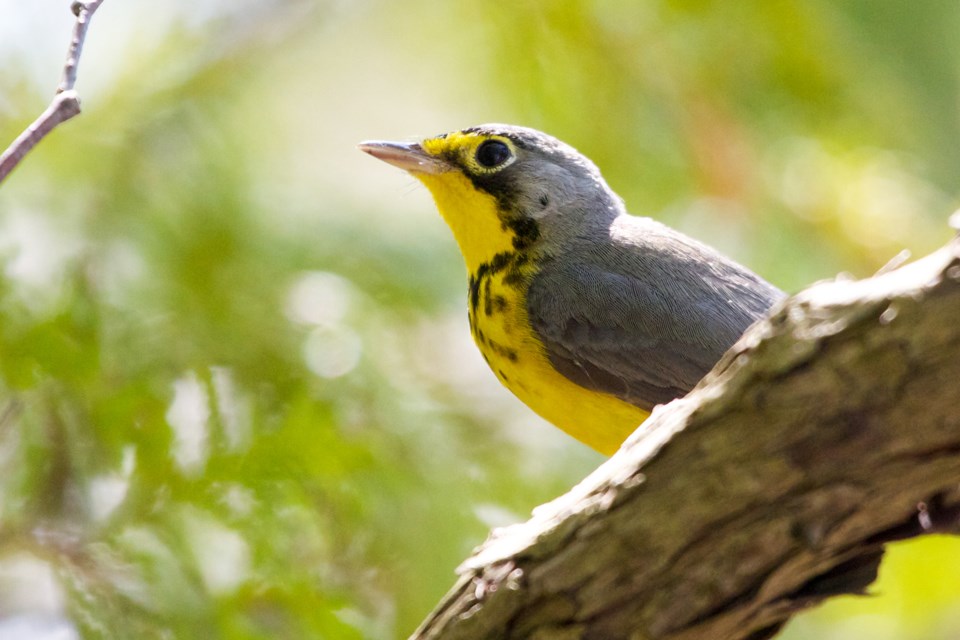In December of 2020, the Honourable Seamus O’Regan, Canada’s Minister of Natural Resources, launched the government’s plan to plant two billion trees over ten years, with an investment of some $3 billion dollars. The commitment is meant to address climate change by reducing carbon pollution and improve air and water quality, and is a key part of Canada’s efforts to achieve a pledge of net-zero greenhouse gas emissions by 2050.
The 2 Billion Trees (2BT) initiative is also expected to create and support thousands of green jobs.
A Niagara-based program, drawing on federal funding, is being spearheaded by the Niagara Peninsula Conservation Authority (NPCA) in conjunction with the Niagara Peninsula Tree Planting Partnership, an amalgam of community groups and municipalities sharing a common interest in planting millions of trees and enhancing biodiversity in the Niagara Peninsula watershed.
“It's in response to the federal government's 2BT initiative, which is a big funding envelope,” said Geoff Verkade, Senior Manager for Integrated Watershed Planning/Information Management at the NPCA. “The process started about two years ago. We would like local landowners who want trees planted on their property to express their interest upfront, so that we can undertake some visioning and define a scope that we can convert into subsequent planting applications. We're aiming for a June start.”
Verkade said that the NPCA hopes to tailor its tree planting application around a range of opportunities, and is in the process of actively encouraging citizens to participate.
“In rural areas, we may be able do a dense, targeted woodlot reestablishment over a couple acres, while some people may want simply a hedgerow in a residential area, and to pop in a couple of trees,” he said. “We are aspiring to really keep the cost to landowners as low as possible. This project can bring a big investment to Niagara, because the feds will fund up to 50 percent of the eligible costs. Our current cost-sharing arrangement through our existing grant program is a 75/25 split with landowners, but that 75 of ours comes off the municipal tax base.”
The intention is to plant trees that are native species to Niagara’s Carolinian forest.
“Canada is dedicated to helping restore and expand Canada’s forests from coast to coast,” says the Honourable Jonathan Wilkinson, Canada’s Minister of Natural Resources. “Trees are essential to our lives: they capture carbon, improve air quality and support wildlife, and they are important allies in our fight against climate change. Today’s investment will help increase tree-planting capacity in the Niagara Peninsula watershed — supporting the creation of good, sustainable and local jobs while also fighting lower emissions and supporting cleaner communities.”
The Niagara Peninsula watershed is the most biodiverse, but also most threatened, ecoregion in all of Canada, with some 150 natural species at risk. Planting trees to restore forests helps to mitigate problems such as erosion, flooding, and degradation of land and water quality.
“The opportunity to engage watershed residents in enhancing our unique forests and urban tree canopy is significant,” says Chandra Sharma, Chief Administrative Officer at NPCA. “As so much of the land is private owned, large-scale reforestation initiatives like 2BT Trees provide local stewardship opportunities and help incentivize landowners to participate in tree-planting programs. The NPCA’s Trees For All initiative will help strengthen and surpass our existing commitments to add 600 hectares of natural cover, plant more than 1 million native trees across the watershed by 2031 and help mitigate the impacts of climate change in the Niagara Peninsula watershed.”
The NPCA is one of 36 Conservation Authorities in the Province of Ontario, and manages 41 conservation areas within the Niagara Peninsula watershed held in public trust for recreation, heritage preservation, conservation, and education.
Information about the NPCA-driven program is available at https://getinvolved.npca.ca/trees-for-all. Community questions related to the NPCA’s Trees for All initiative may be directed to Verkade at [email protected].



